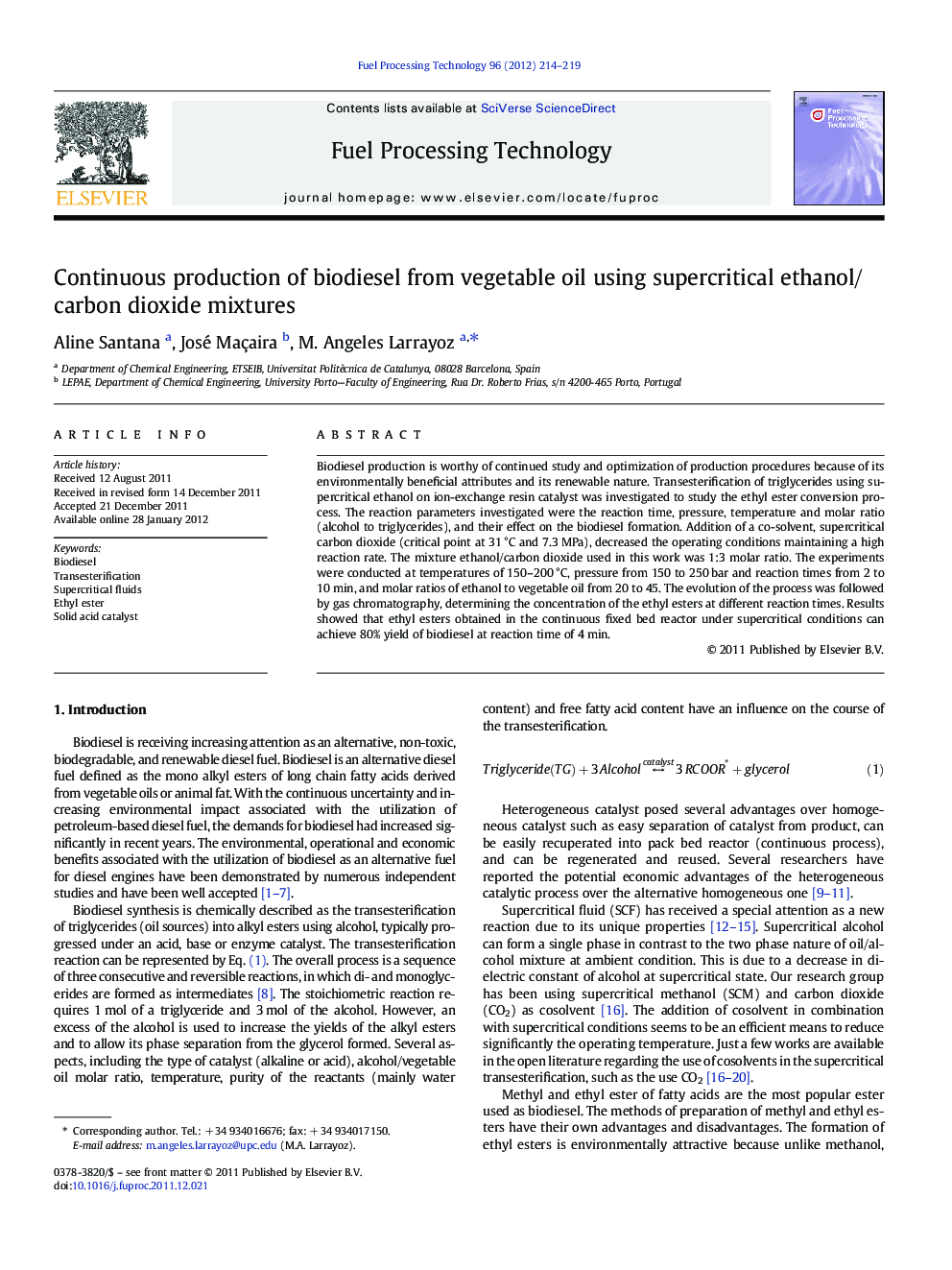| Article ID | Journal | Published Year | Pages | File Type |
|---|---|---|---|---|
| 210408 | Fuel Processing Technology | 2012 | 6 Pages |
Biodiesel production is worthy of continued study and optimization of production procedures because of its environmentally beneficial attributes and its renewable nature. Transesterification of triglycerides using supercritical ethanol on ion-exchange resin catalyst was investigated to study the ethyl ester conversion process. The reaction parameters investigated were the reaction time, pressure, temperature and molar ratio (alcohol to triglycerides), and their effect on the biodiesel formation. Addition of a co-solvent, supercritical carbon dioxide (critical point at 31 °C and 7.3 MPa), decreased the operating conditions maintaining a high reaction rate. The mixture ethanol/carbon dioxide used in this work was 1:3 molar ratio. The experiments were conducted at temperatures of 150–200 °C, pressure from 150 to 250 bar and reaction times from 2 to 10 min, and molar ratios of ethanol to vegetable oil from 20 to 45. The evolution of the process was followed by gas chromatography, determining the concentration of the ethyl esters at different reaction times. Results showed that ethyl esters obtained in the continuous fixed bed reactor under supercritical conditions can achieve 80% yield of biodiesel at reaction time of 4 min.
